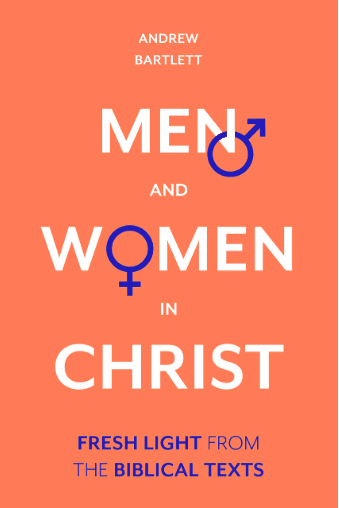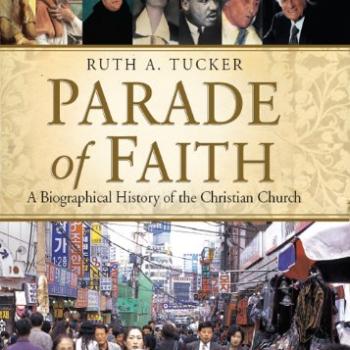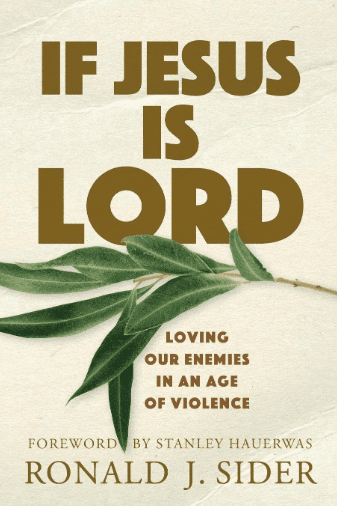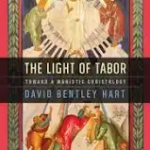RESILIENT FAITH: HOW THE EARLY CHRISTIAN “THIRD WAY” CHANGED THE WORLD
Gerald Sittser (aka Jerry) is the best-selling author of Water from a Deep Well, A Grace Disguised, and The Will of God as a Way of Life
He is the beloved and long-term professor of theology at Whitworth University, where he serves as senior fellow and researcher in the Office of Church Engagement.
The following interview centers around Jerry’s latest book, Resilient Faith. (paid link)
The interview was conducted by David George Moore. Some of Dave’s teaching and interview videos can be accessed at www.mooreengaging.com.
Moore: What (perhaps who!) were the motivating reasons behind writing this book?
Sittser: Like all academics, I read, especially primary sources that are relevant to my field of study. Many years ago, I read a phrase in a second-century document known as “The So-Called Letter to Diognetus” that awakened my curiosity. The anonymous Christian writer used the phrase “Third Race” to describe the early Christian movement. It is apparent in the immediate context of the document that the Roman official, Diognetus, to which the document was written, was familiar with the phrase. The movement was so unique in his mind that it required a new classification. It created a “Third Race” of people, or what I call a “Third way.”
That one phrase lodged itself in my memory. What about the Christian movement made it so new, unique, and appealing (or disturbing) that it had to be classified as radically different from the first race (Rome) and the second race (Judaism). This discovery launched me on a conquest to learn what made the early Christian movement so different. Over time friends of mine, mostly fellow scholars and colleagues, urged me to write a book on it. It is not a traditional text on early Christianity. We have enough of those. The book explores what made the movement unique and successful.
Moore: Timothy George likes to say that there is much that occurred between the death of Jesus and the life of our grandmother, yet most of us are ignorant of these things. Why is knowing history of little interest to many Christians?
Sittser: I am wondering how many people even want to learn much about their grandmothers!
I think there is both a good reason, and a bad reason. The good reason is that we assume the apostolic age is the ideal. So why not simply return to it, which the majority of renewal movements have tried to do. They want to rediscover and imitate the original. There is therefore really no reason to study history, once we leave the apostolic age. The rest of history tells a story of corruption and decline. It is at best a cautionary tale. Of course, there are exceptions. If reformed, then the Reformation has something to teach us; if evangelical, then the 18th-century awakenings; if mainline and progressive, then the social gospel movement. These movements have some value. But knowing the whole of history seems a waste of time. It is best to return to the original. That desire to return to and reclaim pristine Christianity runs as a strong current among Christians, especially evangelical types.
The bad reason is that many American Christians, especially evangelicals, are quite anti-intellectual. Of all disciplines of theology, history seems the most inaccessible and irrelevant, a series of names and dates that mire us in the past. Bible study is more immediately useful; it is the Bible, after all, the holy book of Christianity. Theology, too, seems more relevant because it addresses matters pertaining to doctrine, and thus the truth. But history? It is messy, complex, full of dark moments and ugly stories. Why bother?
Moore: You supply a wonderful bibliography at the end of your book. What two or three books would you say are the best starting points for those who have little background in the first 500 years of the Church’s history?
Sittser: I would always encourage readers to read original or primary sources, many of which are surprisingly accessible, and often moving. Read “The So-Called Letter to Diognetus.” It is short (only 12 pages), elegant, and powerful. It demonstrates that the ancient world of Christianity is not so different from ours. Read the accounts of the martyrdom of Polycarp or Perpetua. These accounts move my students to tears. Read a short collection of sermons, by, say, Basil of Caesarea or John Chrysostom. They remind us that what preached in the 4th century could probably preach today. My students are surprised, even shocked, by the relevance of these texts. The single best secondary source is Robert Louis Wilken’s The Spirit of Early Christian Thought. He is a masterful writer, and he gets inside how early Christians thought and practiced that makes sense of it all.
Moore: You have much to say about the fading influence of Christendom. What is Christendom, and how should the church in America view itself as a result of no longer having the superstructure of sorts that was Christendom?
Sittser: Christendom emerged very slowly over hundreds of years, and the process was never complete. Not every person living during the Middle Ages or Reformation was serious about faith, or even Christian at all. After the fall of Rome and the decline of the empire, it took literally centuries for mostly monk-missionaries to win tribal groups, out of which Christendom emerged. The result was the creation of a symbiotic relationship between church and empire (or state), Christianity and culture. Both entities needed each other. A more serious expression of Christianity never died, though Christendom made Christianity as a religion much less distinct and serious than we find in the early Christian period. The vast majority of people living in Europe were Christian; but many of them were nominal.
The story in America departs from the European narrative in several ways. Europe maintained state-established religion well into the 20th century. In America the Framers believed that this arrangement was bad for the state, and bad for religion. Hence the “separation of church and state.” Religion in America became a competitive enterprise, which is why American religion is both creative and diverse (and divided!). Over time America developed what I would call a “cultural establishment of religion.” The vast majority of people living in America claim Christianity as their religion, and many regularly attend church, too. Presidents end their State of the Union addresses with “God bless America.” Christianity is alive and well in America. It is culturally established, though that arrangement is changing. We see evidence of that in cities on the two coasts. Rates of traditional Christian belief and church attendance are much lower in cities like Seattle and San Francisco than they are in cities like Chattanooga and Sioux Falls, especially among people under the age of 35. The “cultural establishment of Christianity” has less holding power than it used to have. In my mind the church has to adjust, not by becoming more coercive but by becoming more winsome and persuasive, and more faithful to the apostolic faith.
Moore: From my own work, especially the forthcoming documentary on the Dones, I was glad to read that you believe “indifference and even intellectual laziness” contribute to many drifting from the Christian faith. The psychologist and gadfly, Jordan Peterson, likes to tell young men that they have no credibility to protest when their rooms are unkempt. It seems you agree that many drift from the faith for less than compelling reasons. Would you unpack the problem of Christians who are intellectually lazy and share a few things that can be done to address it?
Sittser: Well, that is not exactly what I would argue. I want to be as charitable as I can be! I would say that for many in their twenties the air they breathe makes it easier for them to drift from traditional faith, from involvement in local churches, and from the practice of Christian disciplines. The choice to leave Christianity used to require more effort and commitment. The decision NOT to believe demanded a conscious commitment to resist the religious status quo of Christendom. Not so much anymore. Hence the drift we see.
I would be quick to add, however, that many people in their twenties care about important matters. They volunteer for worthy causes. But they frame their convictions and pursue causes without much reference to Christianity. They might pursue the protection of the planet, but not because God created it and Jesus was incarnated to redeem it.
A post-Christendom culture demands less from those who reject Christianity; it demands more from those who choose to become or remain Christian. It seems more the case that the burden of proof rests on those who decide to believe and live as Christians. Christian professors and pastors need to think this through. Traditional apologetics might have to make room for a more psychological and sociological defense of Christianity. For example, we know that Christian belief makes a person more stable, makes for better marriages, and makes for a healthier society. For those suffering from loneliness, anxiety, and depression, all of which are increasing, this is good news. This research might provide a way to make a new case for Christianity. I recently read Lost Connections, which Oprah loves! Though the author claims to be an atheist, his research actually makes a case for Christianity, however indirectly. These newer methods of apologetics are good allies to older methods that we find in intellectuals like C. S. Lewis. We can trace the results of faith—a happy and healthy life—to the source, which of course is Jesus Christ, the redemption he offers and the life he calls us to live.
Moore: The late Dallas Willard used to say that discipleship was not taking place in most of the churches he visited. Do you agree with him, and if so, what happened to make this central ministry of spiritual formation lose its place in the life of our churches?
Sittser: Christendom makes discipleship an option, not a requirement. During the medieval period the word “conversion” applied to people who chose to become monks or nuns. They were “converted” to the religious life. In other words, if everyone was Christian by default—Christian by virtue of living in western society, Christian because they were born and baptized into it—then discipleship was reserved for those who made a special decision to be serious about faith, to practice and live it. Discipleship was for the few, not the many. Everyone was assumed to be Christian; some people chose to be disciples.
That basic assumption lingered for centuries. Renewal movements emerged over the centuries to Christianize Christendom, to challenge people to live as Christians. Just consider the monastic movement (e.g., Cistercians), or the mendicant movement (e.g., Franciscans), or the awakenings (e.g., Methodists). But what happens when Christendom fades? It tends to have the effect of eliminating nominal Christians. There is simply little or no reason to be Christian anymore. Cultural pressure virtually disappears. If anything, there is more pressure NOT to believe. But the fading of Christendom does provide an opportunity—and even makes it a necessity—to make genuine disciples.
I conclude the book by describing the long on-ramp that early Christian leaders created to move people from traditional religion into the Christian fold. The difference between the two—paganism and Christianity—was so great that a simple, short, convenient conversion would have made no sense. Most people in the ancient world knew nothing about Christianity. Consequently, Christian leaders created a process of training called the “catechumenate,” which was embodied in a two to three-year process of formation. Christian leaders believed that such training was inherent to the faith (Jesus, after all, is Lord) and necessary for its survival and growth. The twin temptations of accommodation to culture or isolation from culture would have meant the death of the movement. Instead, early Christians influenced the culture without excessive compromise and maintained an observable difference from the culture without excessive isolation.
Moore: What are two or three things you hope your readers take away from reading Resilient Faith?
Sittser: Really, only one. The early Christian movement created a “Third Way.” It is easy for us to forget how new and unique this movement was, and still is. Rome had never seen the likes of it before. It introduced a new kind of belief, worship, identity, authority, community, and way of life. The movement was new because Jesus was new. Rome had never seen the likes of Jesus before either. Consequently, the movement grew out of the uniqueness of Jesus. As Luke proclaims in the Acts of the Apostles, this movement “turned the world upside down,” and did so long before Constantine assumed the throne and laid the groundwork for the Christian empire and the emergence of Christendom.
In our increasingly post-Christendom setting, we have much to learn from a movement that flourished in a pre-Christendom setting. Mere survival would have been impressive enough. But they did far more than survive. They flourished without state establishment and cultural privilege. They had no big church buildings and budgets, no favored political candidates they could vote into office, no conservative (or liberal) supreme court judges, no large-scale non-profits, no big publishing companies, no celebrity preachers, no internet, podcasts, blogs, Instagram, and Twitter. Yet they surpassed all expectations and succeeded against all odds. Perhaps we have something to learn from these early Christians!





 Our position in creation is defined by relationship and vocation. As humans we are created to be in relationship with God and to serve as his image in the world. To rule and subdue as his image is not a calling to destroy and deface. Rather it calls for care of the ‘garden’ extended to all of creation, to fight against God’s enemies, to rule for the good of the ruled not aggrandizement of the ruler. We rule under God, to image God’s care to all of creation as best we can.
Our position in creation is defined by relationship and vocation. As humans we are created to be in relationship with God and to serve as his image in the world. To rule and subdue as his image is not a calling to destroy and deface. Rather it calls for care of the ‘garden’ extended to all of creation, to fight against God’s enemies, to rule for the good of the ruled not aggrandizement of the ruler. We rule under God, to image God’s care to all of creation as best we can.









